Lavender may support relaxation, improve sleep quality, and promote overall wellness — according to growing scientific research. This fragrant herb, derived mainly from Lavandula angustifolia, is valued not only for its soothing aroma but also for its potential health-supportive properties. Understanding how lavender works — and the safest ways to use it — can help you make informed choices for both mental and physical well-being.
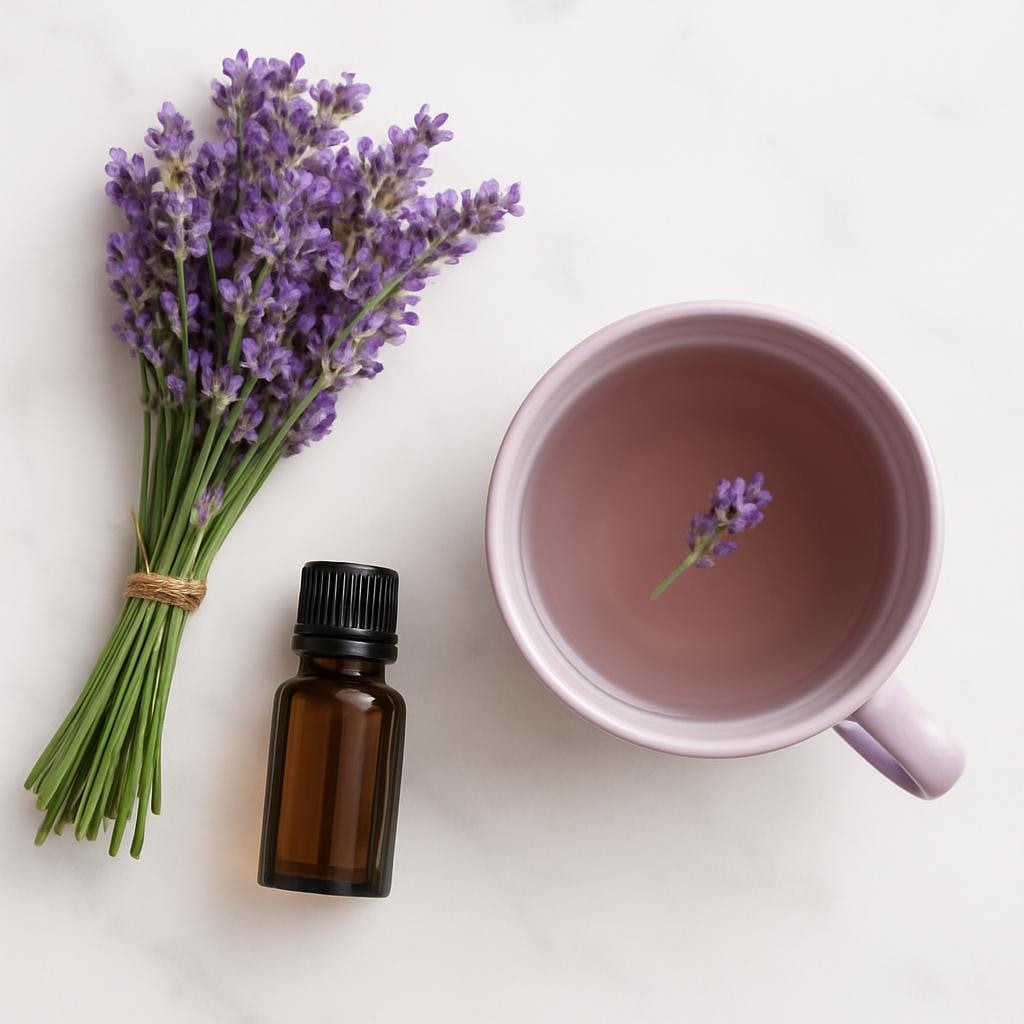
Lavender is used in aromatherapy, teas, and essential oils, and emerging studies suggest it may support mood, skin health, and stress balance. Below is a detailed, science-based look at its top evidence-supported benefits.
What Is Lavender?
Lavender (Lavandula angustifolia) is a Mediterranean herb from the mint family (Lamiaceae) long valued for its calming aroma and wellness-supportive properties. Its fragrant purple flowers yield an essential oil rich in linalool and linalyl acetate — compounds known for their relaxing, antioxidant, and mild antimicrobial actions (Frontiers in Pharmacology, 2017).
Common forms include essential oil, dried flowers, extracts, capsules, and herbal tea.
According to the National Center for Complementary and Integrative Health (NCCIH), lavender is likely safe when used in normal food or aromatherapy amounts, though evidence on its therapeutic effects remains limited (NCCIH, 2024).
It’s best viewed as a supportive botanical that may help promote relaxation, emotional balance, and self-care.
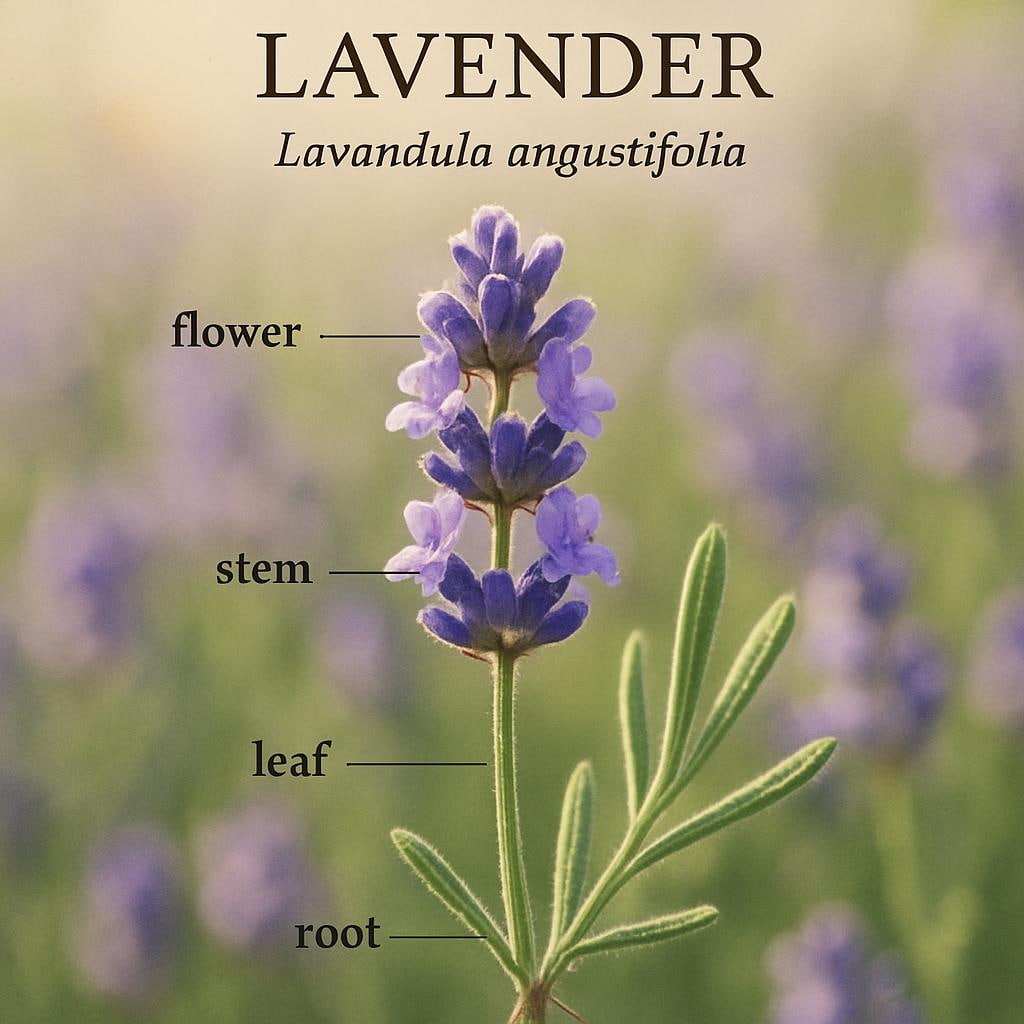
Nutritional and Phytochemical Profile of Lavender
Lavender’s health value comes mainly from its phytochemicals, not its calories or macronutrients. The essential oil contains more than 100 natural compounds — primarily linalool and linalyl acetate — that may support calmness and antioxidant defense.
Lavender flowers are also rich in polyphenols, flavonoids, and tannins, which act as antioxidants to help neutralize free radicals and support cellular wellness (Journal of Functional Foods, 2022).
Key nutrient highlights (per 100 g dried lavender; USDA FoodData Central, 2024):
- Energy: ≈ 49 kcal
- Calcium: ≈ 215 mg
- Iron: ≈ 2.5 mg
- Polyphenols: High antioxidant activity
Together, these compounds explain lavender’s role as a natural wellness herb — supporting relaxation, antioxidant protection, and overall balance when used safely in teas, oils, or aromatherapy.
10 Proven Health Benefits of Lavender (Backed by Science)
Lavender (Lavandula angustifolia) has been studied for its calming aroma and bioactive compounds that may support stress reduction, better sleep, and overall wellness. Below are ten research-backed benefits, each grounded in scientific and clinical findings.
1. Supports Relaxation and Stress Relief
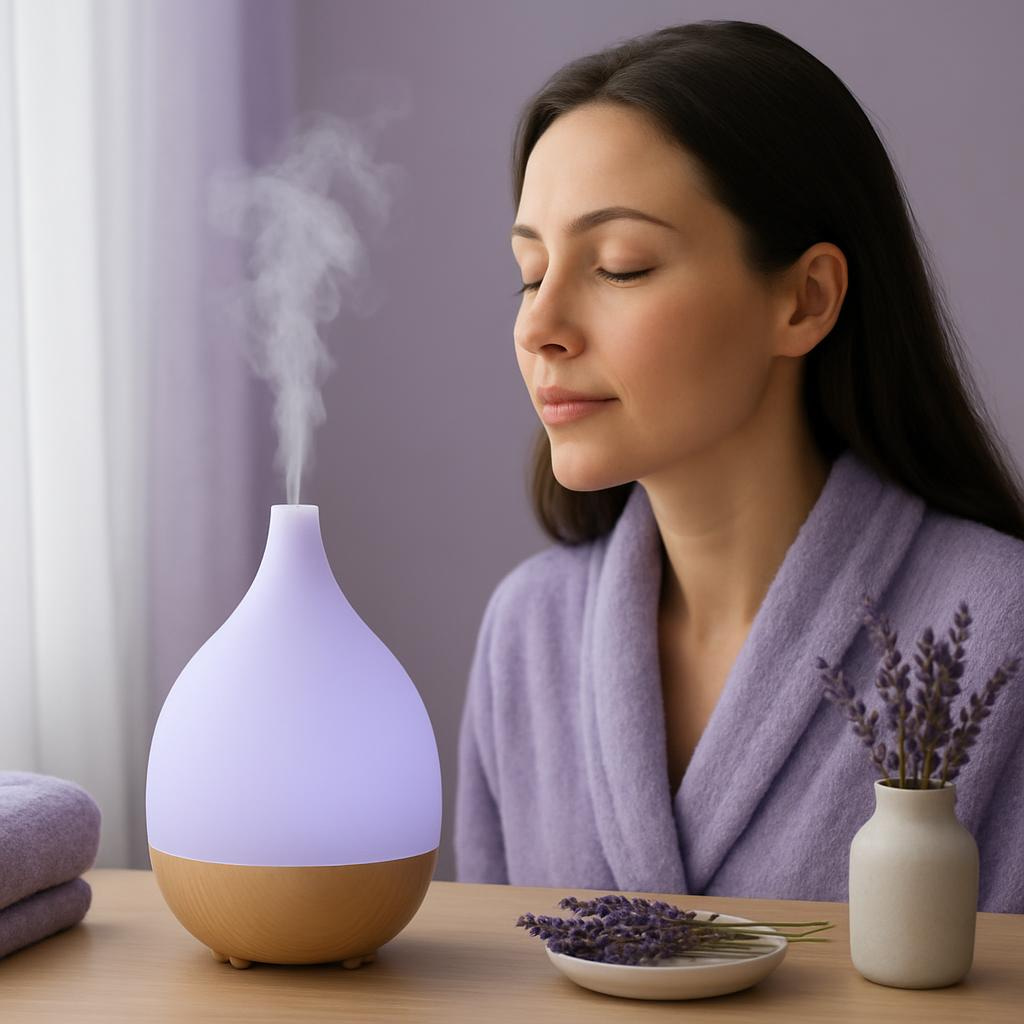
Lavender’s soothing scent may help promote relaxation and reduce mild stress.
A 2022 systematic review in Complementary Therapies in Medicine found that lavender aromatherapy significantly lowered anxiety and improved emotional balance among participants exposed to daily lavender inhalation sessions. Its main components — linalool and linalyl acetate — interact with neurotransmitter systems such as serotonin and GABA, influencing calmness without causing sedation (Frontiers in Pharmacology, 2017).
Best ways to use: Diffuse 2–3 drops of lavender oil in an aromatherapy diffuser, add a few drops to a warm bath, or enjoy a cup of lavender herbal tea before bedtime.
2. May Improve Sleep Quality
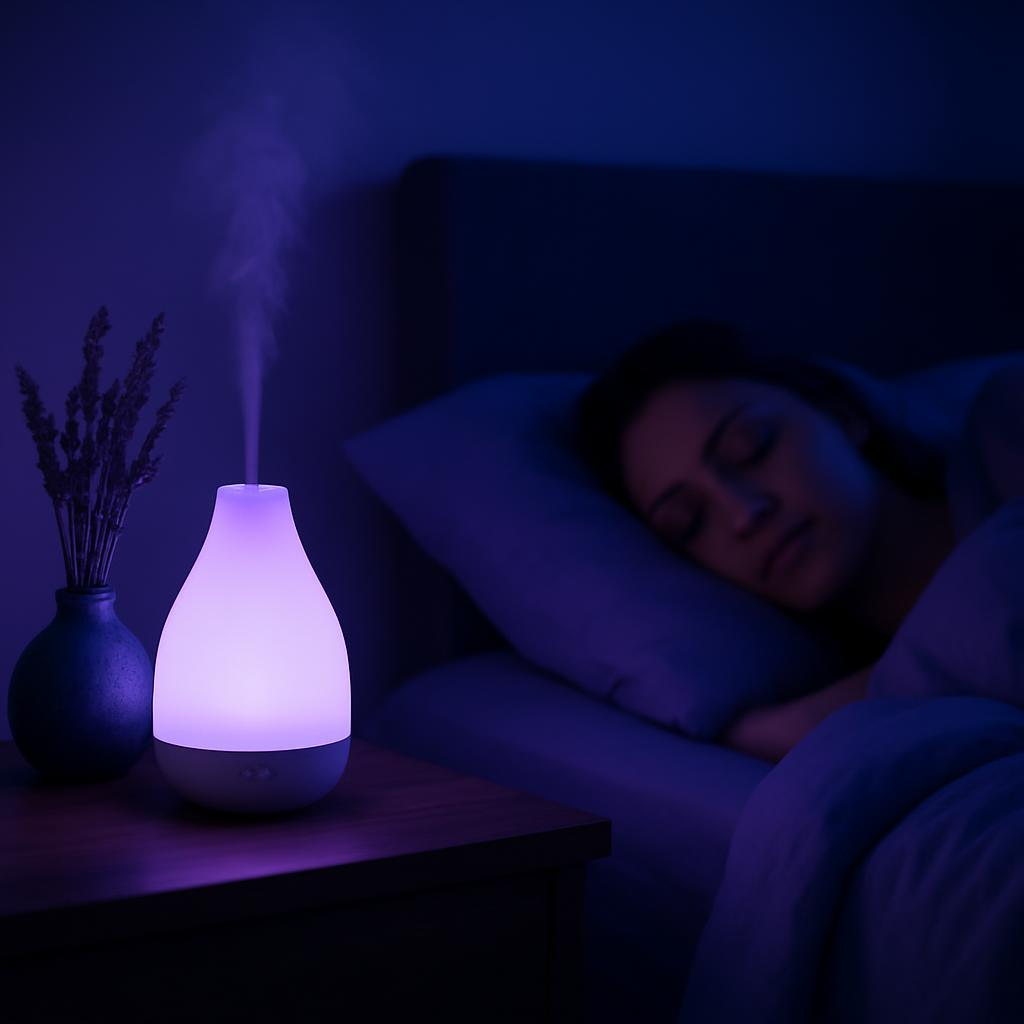
Lavender is one of the most studied natural aids for supporting restful sleep.
Research published in Frontiers in Pharmacology reported that inhaling lavender essential oil before bedtime improved sleep efficiency and reduced insomnia symptoms in adults.
The National Center for Complementary and Integrative Health (NCCIH) notes that lavender aromatherapy is commonly used to promote relaxation and may be beneficial for sleep hygiene when used safely (NCCIH, 2024).
Practical tip: Place a lavender-filled sachet under your pillow or diffuse lavender essential oil for 20 minutes before sleeping.
3. Supports Mood and Mental Well-Being

Lavender may help maintain a calm, balanced mood.
Clinical studies on oral lavender-oil preparations (such as Silexan®) show that it may reduce mild anxiety and tension in adults when taken under supervision.
According to WebMD, lavender’s aromatic compounds may promote relaxation by influencing brain pathways that regulate mood and emotional stability (WebMD, 2024).
Use idea: Inhale lavender oil during stressful moments or include it in mindfulness routines to help support emotional wellness.
4. May Support Pain and Headache Relief
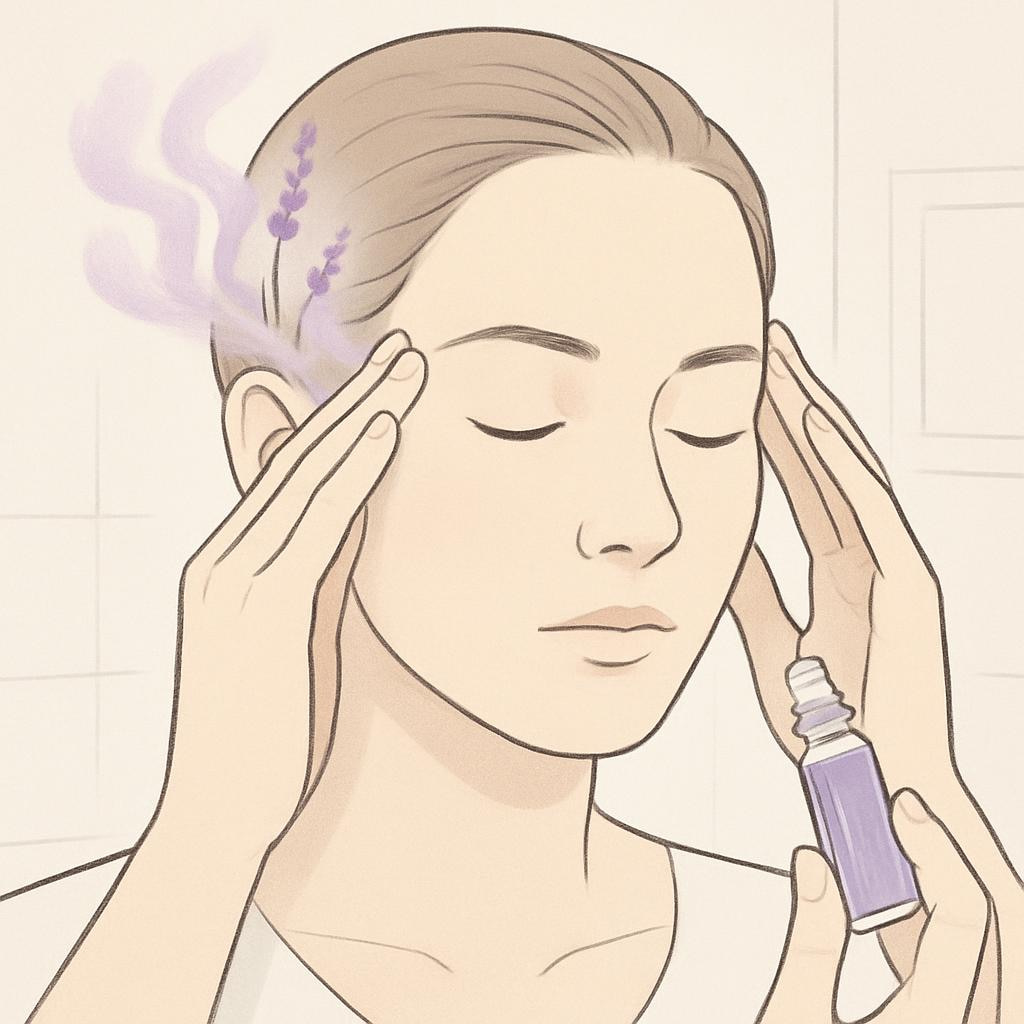
Lavender essential oil, when inhaled or diluted for topical use, may help reduce mild headaches and muscle discomfort.
A small clinical trial in European Neurology found that participants who inhaled lavender vapor during migraine episodes experienced reduced discomfort compared with placebo.
Lavender’s anti-inflammatory and muscle-relaxant effects are thought to be responsible for these soothing properties.
Tip: Gently massage diluted lavender oil (1 drop per teaspoon of carrier oil) onto temples or neck areas for aromatic comfort.
5. Promotes Healthy Skin
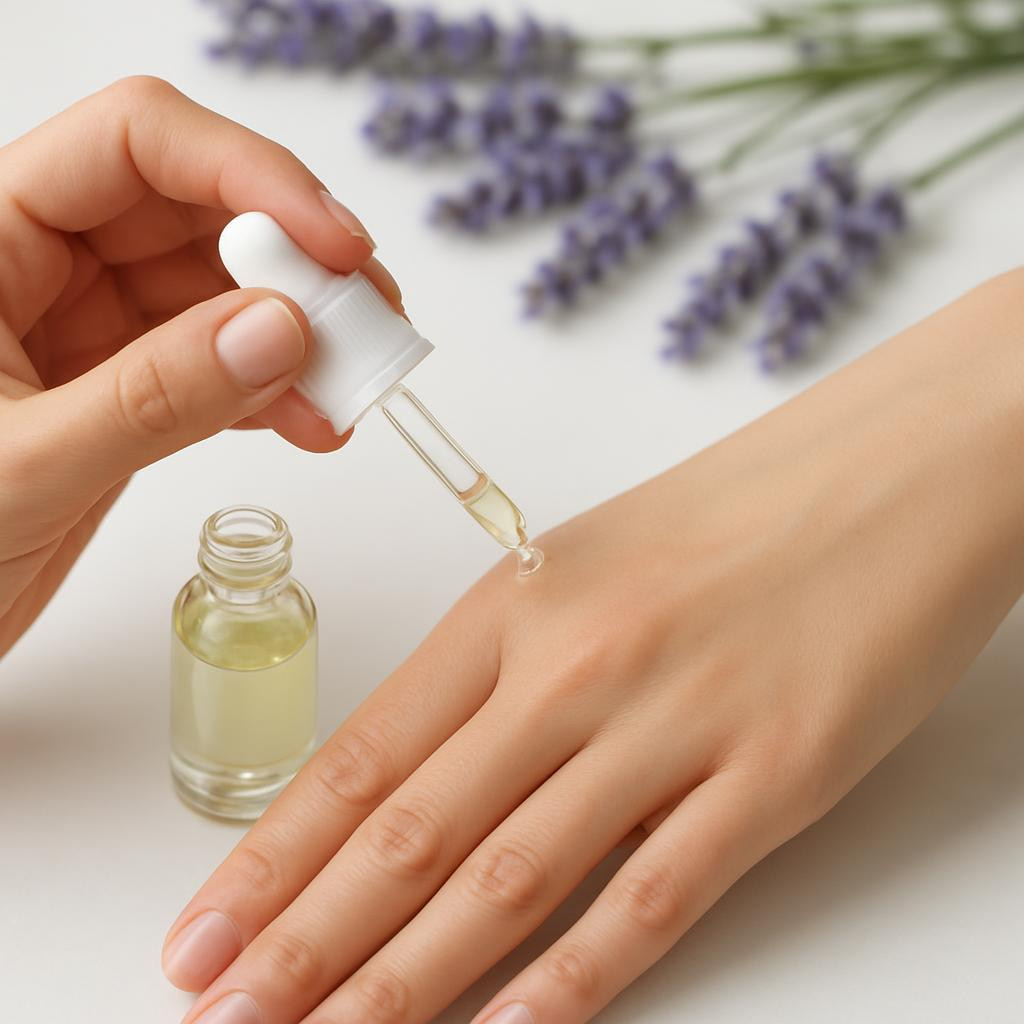
Lavender oil has natural antimicrobial and antioxidant properties that may support healthy skin and minor wound care.
According to the Cleveland Clinic, diluted lavender oil can help reduce mild skin irritation and redness by supporting the skin barrier and limiting bacterial growth when used safely (Cleveland Clinic, 2024).
It may also support skin repair by promoting collagen activity in minor abrasions.
Important: Always perform a patch test before using lavender oil topically to check for sensitivity.
6. May Support Digestive Comfort
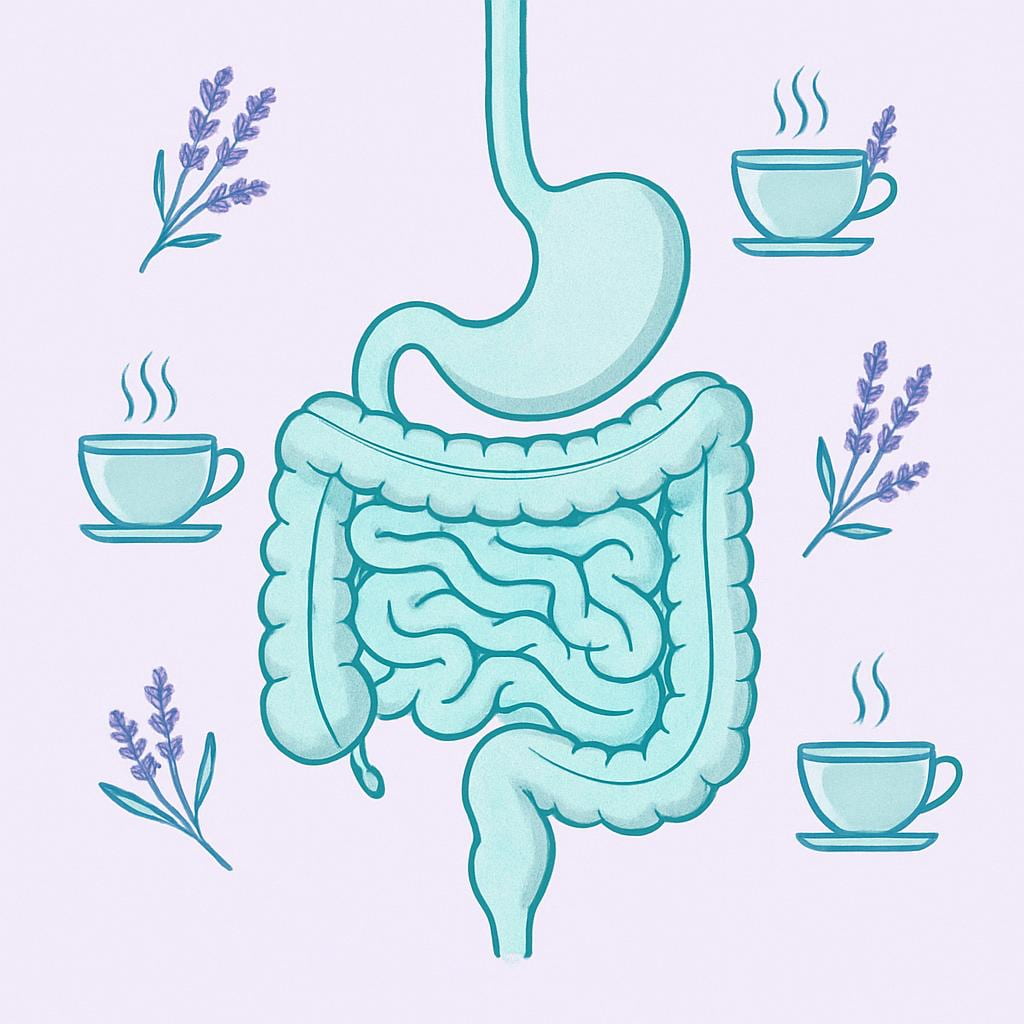
Lavender tea and extracts have long been used traditionally to support digestion and relieve mild bloating or stomach tension.
Lavender’s muscle-relaxant effects may help calm the digestive tract by acting on smooth-muscle receptors.
Although research is limited, Medical News Today notes that herbal teas containing lavender may gently support digestion when consumed in moderation (Medical News Today, 2024).
Use tip: Steep 1 teaspoon of dried lavender buds in hot water for 5–10 minutes; drink after meals to promote digestive comfort.
7. Supports Respiratory Comfort
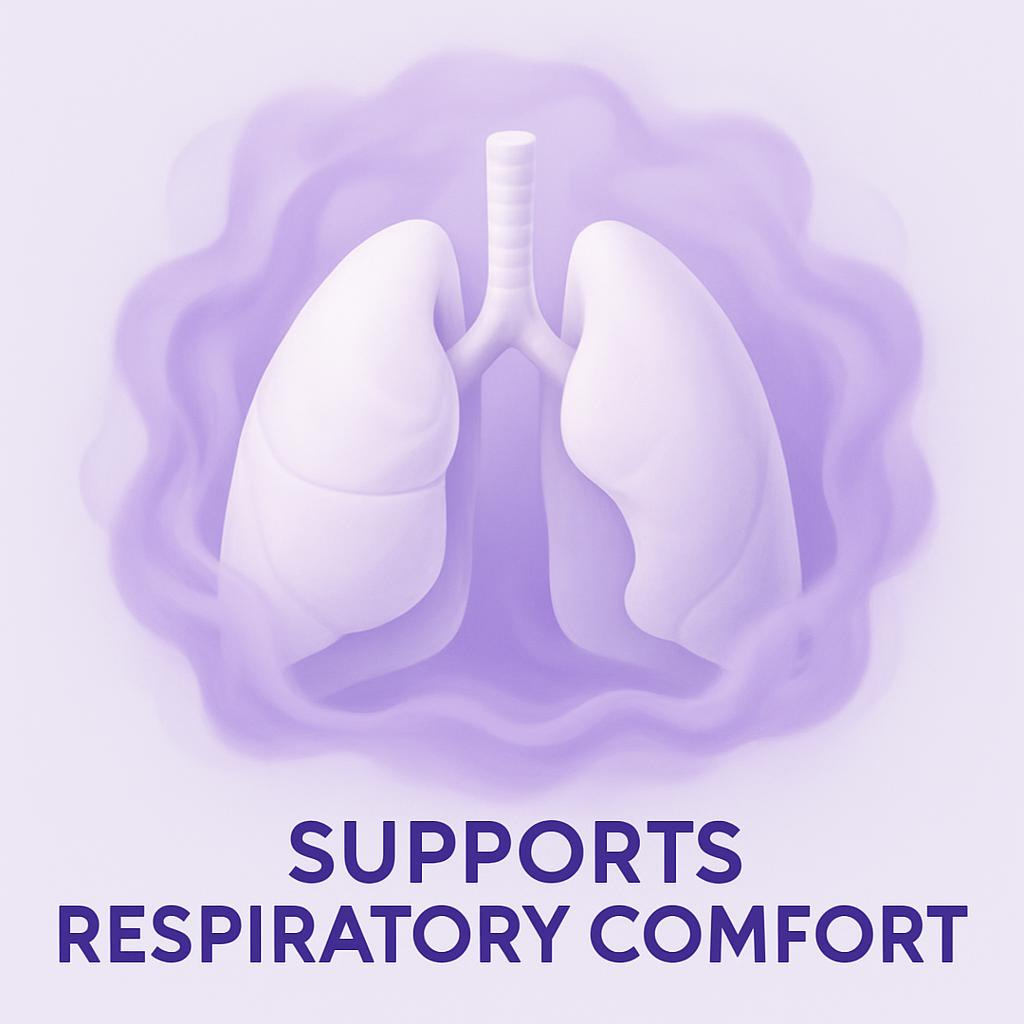
The soothing vapor of lavender oil may provide temporary comfort for mild respiratory irritation or congestion.
Inhalation of lavender essential oil vapor has been shown in laboratory models to support airway relaxation, possibly through anti-inflammatory mechanisms.
However, experts emphasize that lavender aromatherapy should complement, not replace, medical care for respiratory issues (NCCIH, 2024).
Use idea: Add a few drops of lavender oil to a bowl of hot water, inhale gently, and avoid direct contact with eyes.
8. Rich in Antioxidants
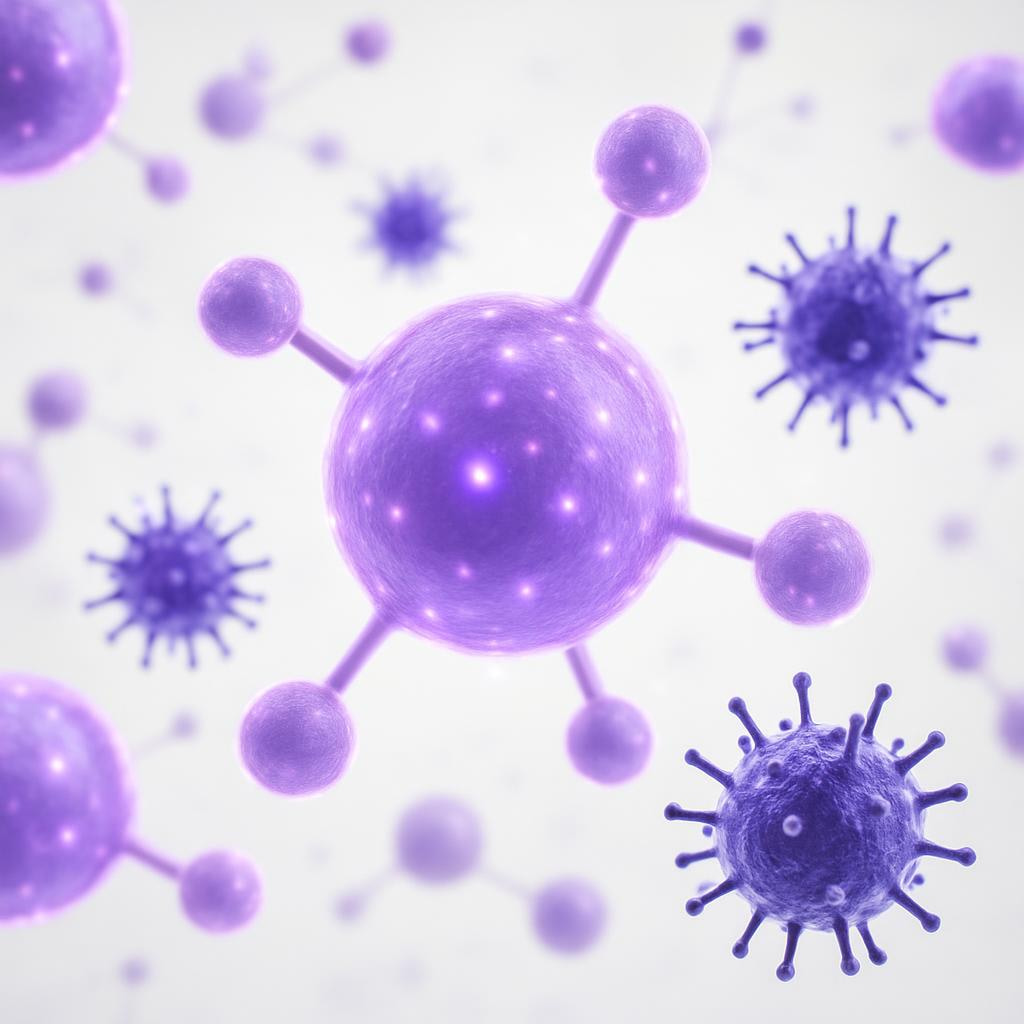
Lavender is naturally rich in polyphenols, flavonoids, and terpenoids, which support the body’s antioxidant defenses.
These compounds help neutralize free radicals that contribute to oxidative stress, a process linked to cellular aging and chronic disease development.
According to a 2022 paper in the Journal of Functional Foods, lavender extracts showed significant antioxidant capacity due to high phenolic content.
Wellness tip: Enjoy lavender as tea or as part of a balanced diet rich in colorful fruits, herbs, and vegetables to enhance antioxidant intake.
9. May Support Hair and Scalp Health
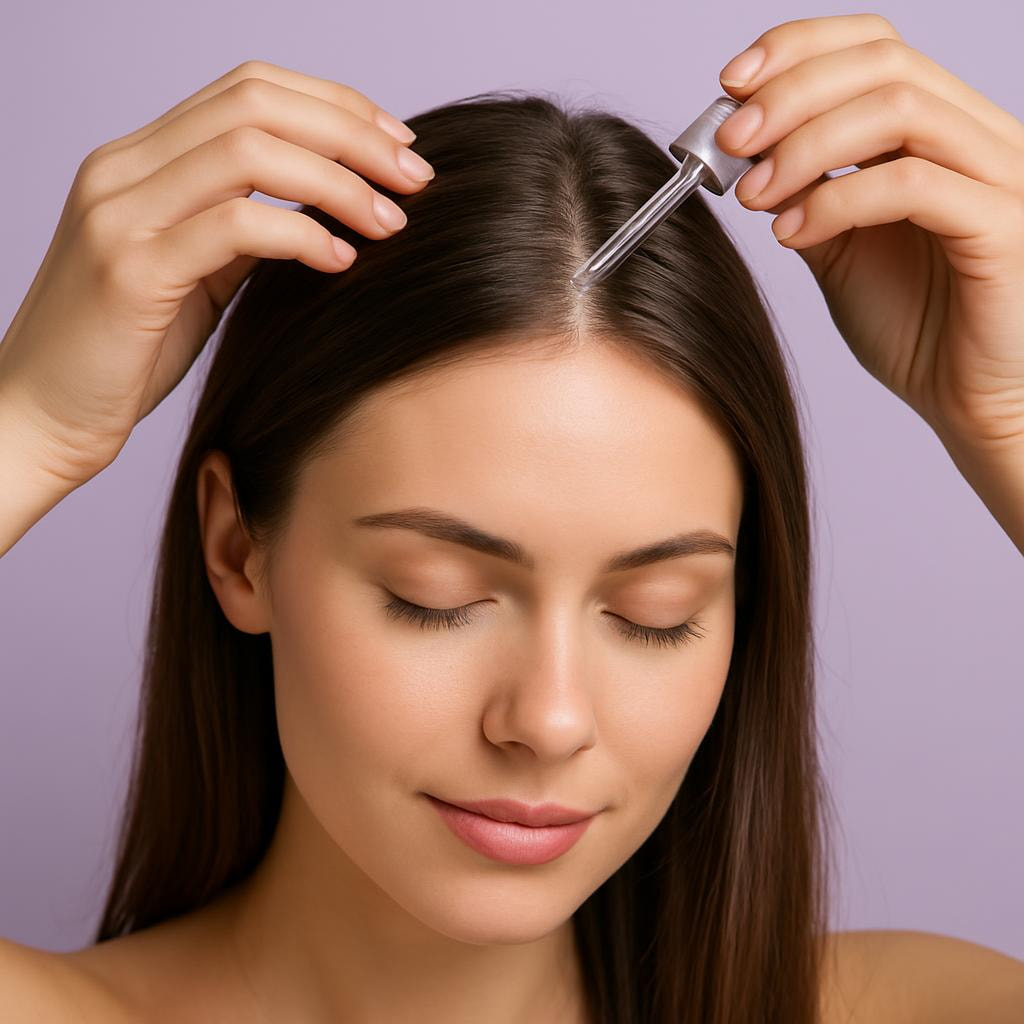
Preliminary research suggests that applying diluted lavender oil to the scalp may support healthy hair growth and improve circulation.
An animal study published in Toxicological Research found that lavender oil enhanced follicle thickness and hair density over four weeks of topical application.
While more human studies are needed, this evidence indicates lavender oil may benefit scalp wellness when used with carrier oils like jojoba or coconut.
10. Supports Overall Wellness and Relaxation
Lavender’s holistic benefits extend to emotional, physical, and environmental well-being.
Because it acts on multiple systems — from the nervous system to the skin — lavender helps create balance and mindfulness when used consistently and safely.
The NCCIH affirms that lavender products are generally safe for adults when used as directed and may be integrated into self-care routines such as baths, teas, or aromatherapy sessions.
Daily use tip: Add a few drops of lavender oil to bathwater or use lavender spray on linens to promote calm throughout the day.
How to Use Lavender for Best Results
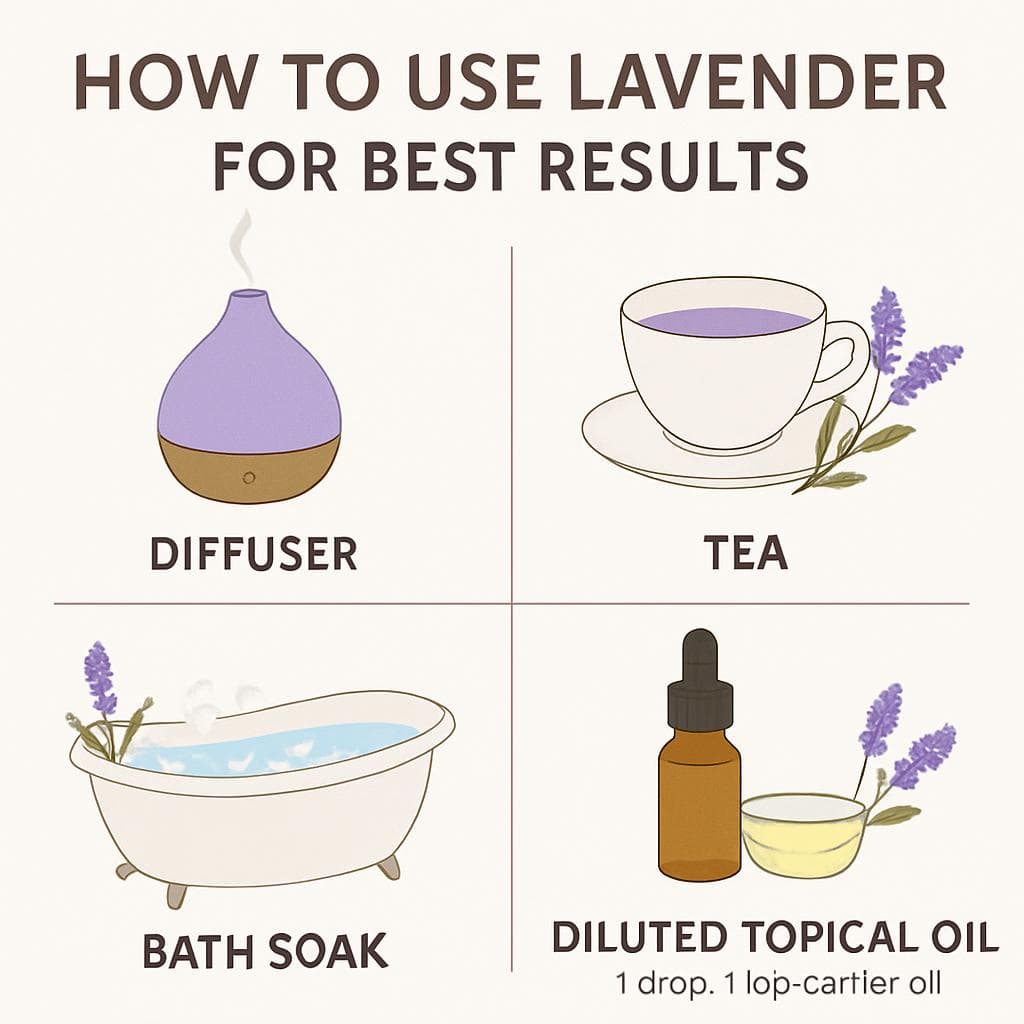
Lavender can be used in several safe, practical ways to support calmness and general wellness. Its essential oil and dried forms are versatile when used correctly and stored under proper conditions.
1. Aromatherapy:
Add 2–4 drops of lavender essential oil to a diffuser or bowl of hot water and inhale the vapor for 15–30 minutes. This method may promote relaxation and better sleep.
(NCCIH recommends using essential oils only as aromatherapy or in diluted topical applications — never undiluted ingestion.)
2. Lavender Tea:
Steep 1 teaspoon of dried lavender buds in 1 cup of hot water for 5–10 minutes. Drink warm, up to twice daily, to help support calm digestion or reduce mild tension.
3. Bath Soaks:
Mix 5–6 drops of lavender oil with 1 tablespoon of carrier oil or unscented bath salt before adding to warm bathwater. The steam and aroma may help relax muscles and support stress relief.
4. Topical Use (Dilution Required):
Always dilute essential oil before applying to skin.
→ Safe ratio: 1 drop lavender oil : 1 teaspoon (5 mL) carrier oil such as coconut or jojoba.
Apply to wrists, temples, or behind the ears for a soothing scent. Perform a patch test before full use.
5. Storage and Safety:
Store lavender essential oil in a dark glass bottle at a cool, stable temperature below 25 °C (77 °F), away from sunlight and heat to preserve quality. The U.S. Food and Drug Administration (FDA) advises that essential oils used in cosmetics or aromatherapy must be properly labeled, stored securely, and kept out of reach of children and pets. Only use products intended for cosmetic or aromatherapy purposes, never for ingestion. Close caps tightly after each use to prevent evaporation and contamination. Following these FDA-based safety practices ensures lavender oil remains stable, pure, and effective.
(FDA, 2024)
Possible Side Effects and Precautions
While lavender is generally considered safe in small or diluted amounts, improper or excessive use may cause unwanted effects.
1. Allergic Reactions:
Topical application may occasionally cause redness, itching, or dermatitis. Always perform a patch test before use, especially for sensitive skin.
2. Hormonal Concerns:
The Endocrine Society (2018) reported rare cases suggesting repeated topical use of lavender and tea tree oil might have mild estrogenic or anti-androgenic activity in prepubertal boys (Endocrine Society, 2018).
These findings are limited but highlight the importance of moderation and professional guidance for children and adolescents.
3. Medication Interactions:
Lavender may increase the sedative effects of medications such as benzodiazepines, sleep aids, or antidepressants. Individuals using such drugs should consult a qualified healthcare provider before regular use.
4. Pregnancy and Breastfeeding:
Data on lavender’s safety during pregnancy and lactation are limited. It should be used only in food-level amounts or under medical supervision.
5. Ingestion Warning:
Pure essential oils should never be ingested unless specifically directed by a licensed healthcare professional. Use only products clearly labeled for culinary use.
Frequently Asked Questions (FAQ)
Q1. Can lavender really help me sleep better?
Research suggests lavender aromatherapy may support improved sleep quality, though effects vary among individuals.
Q2. Is lavender oil safe for daily use?
Yes — when properly diluted and applied topically or diffused in small amounts. Avoid undiluted skin contact.
Q3. Can I drink lavender tea every day?
Moderate intake (1–2 cups daily) is generally safe for most adults.
Q4. Can lavender help with anxiety or mood?
Some clinical studies show that lavender oil may reduce mild anxiety and promote relaxation, but it should not replace professional treatment.
Q5. Is lavender safe during pregnancy?
Lavender in food-level amounts may be safe, but concentrated essential oils should be avoided unless approved by a healthcare provider.
Q6. Can lavender cause allergies?
Yes. Sensitive individuals may experience contact dermatitis or mild irritation; always patch-test first.
Q7. Can lavender interact with medicines?
Possibly. Lavender may enhance the effects of sedatives or antidepressants — consult your doctor before combining.
Conclusion
Lavender is a gentle, aromatic herb backed by scientific evidence for its potential to support relaxation, sleep quality, skin comfort, and overall well-being. Its effectiveness comes from bioactive compounds like linalool and linalyl acetate, which work naturally with the body’s systems.
Used moderately and safely — whether as tea, aromatherapy, or diluted essential oil — lavender can be a valuable addition to everyday self-care. Always store oils properly, follow dilution ratios, and seek professional advice when needed, especially for children, pregnancy, or medication use.
This content is for informational purposes only and not medical advice.
References:
- National Center for Complementary and Integrative Health (NCCIH) — Lavender
https://www.nccih.nih.gov/health/lavender - Frontiers in Pharmacology — Lavender and the Nervous System (Linalool & Linalyl Acetate Mechanisms)
https://www.frontiersin.org/articles/10.3389/fphar.2013.00094/full - Journal of Functional Foods — Antioxidant Activity of Lavender Extracts (2022)
https://www.sciencedirect.com/journal/journal-of-functional-foods - European Neurology — Lavender Essential Oil in the Treatment of Migraine Headache (Clinical Trial)
https://www.karger.com/Article/Abstract/339767 - Cleveland Clinic — Health Benefits of Lavender
https://health.clevelandclinic.org/health-benefits-of-lavender - Endocrine Society — Hormonal Effects of Lavender and Tea Tree Oil (Safety Advisory, 2018)
https://www.endocrine.org/news-and-advocacy/news-room/2018/chemicals-in-lavender-and-tea-tree-oil-appear-to-be-hormone-disruptors - U.S. Food & Drug Administration (FDA) — Essential Oils: Cosmetic Product & Safety Guidance
https://www.fda.gov/cosmetics/cosmetic-products/essential-oils - USDA FoodData Central — Lavender (Dried Herb) Nutrient Composition
https://fdc.nal.usda.gov/
